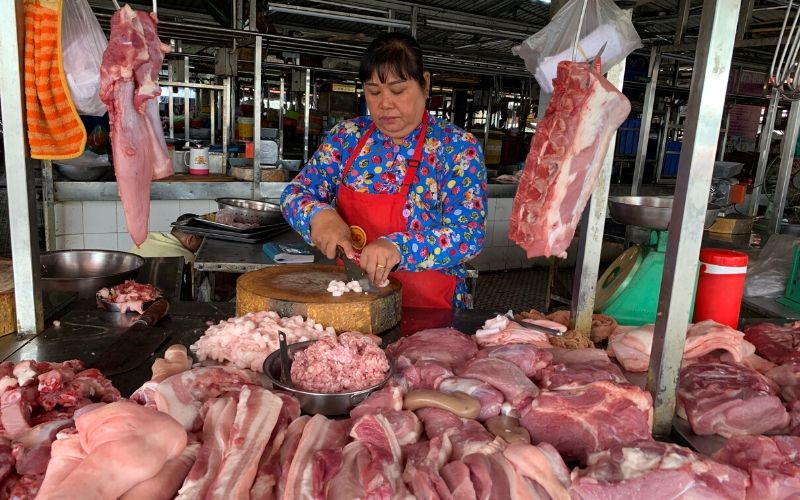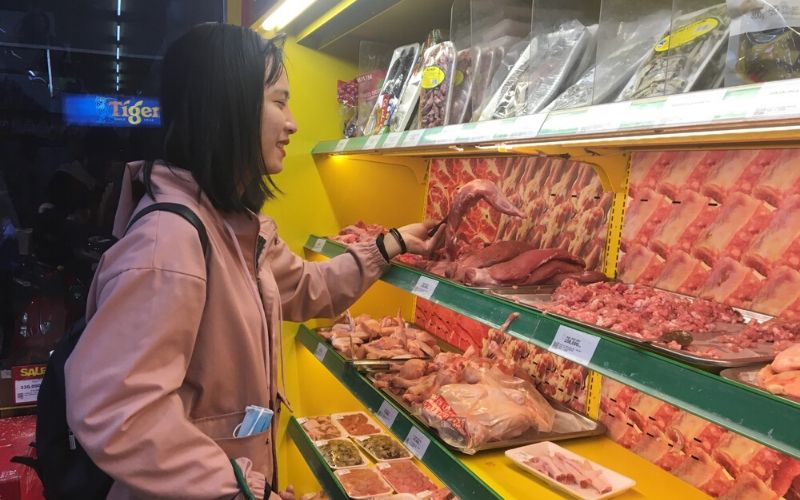As of November 10, 2019, the African Swine Fever has resulted in the culling of 5,851,442 pigs across Vietnam since the outbreak began in early February 2019. This equates to approximately 335,661 tons, or 8.8% of the country’s total pig weight. The impact of this disease has been significant for the Vietnamese food market, especially with the Lunar New Year approaching. As a result, pork prices have surged in provinces across the country, with northern regions experiencing record-high prices of VND 70,000-75,000 per kg.
Unscrupulous traders have taken advantage of this situation, selling low-quality and unidentified pork at prices comparable to those of higher-quality meat. They are misleading consumers and prioritizing their profits over food safety. Not only is the meat of questionable quality, but internal organs are also being sold without proper inspection or food safety certifications in place.

How can consumers ensure they are purchasing safe pork?
To ensure the safety and quality of the meat, consumers are advised to purchase from reputable shops, preferably those that are part of a recognized chain or supermarket. These establishments have strict quality control measures in place for their suppliers, giving you peace of mind.

Additionally, when buying pork, consumers should pay attention to the meat’s appearance and texture. High-quality pork has a fresh pink color, neither too red nor too pale. On the other hand, spoiled meat tends to be pale and greenish, and it emits a distinct foul odor.
Moreover, good-quality pork is firm and elastic. Press the meat with your finger; if it bounces back quickly without any liquid or slime, it’s a sign of freshness and good quality.
For more detailed guidance, consumers can refer to the article “” which provides valuable insights into selecting the best pork for your family. With pork prices soaring during this festive season, it’s crucial to be vigilant and selective about your meat sources to ensure the well-being of your loved ones.
8 Common Mistakes People Make with Cutting Boards
Are you using your cutting board correctly? Many Vietnamese households rely on cutting boards in their kitchen, but not everyone knows how to use them properly, especially when it comes to wooden cutting boards. Check out these 8 mistakes to avoid when using a cutting board to ensure both hygiene and safety for everyone in your family.
Is Refrigerated Leftovers Linked to an Increased Risk of Cancer?
Dr. Lam Van Man, Head of Research, Development and Technology Transfer Department of the Institute of Safety Food, has warned of the risk of food poisoning when reheating leftovers from the refrigerator. But what should we be aware of when it comes to the possibility of these leftovers causing cancer? Here, we explore what the experts have to say on the matter and offer some tips for safe eating.





































